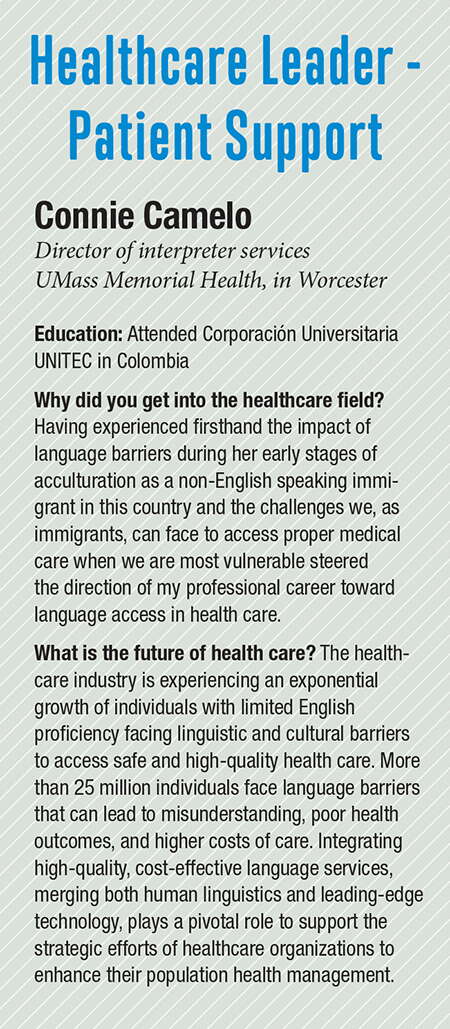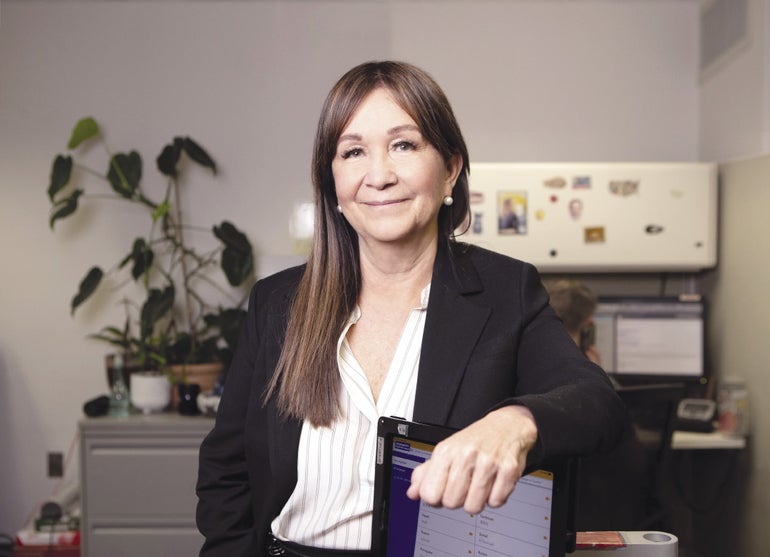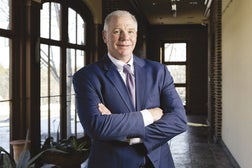
Champions of Health Care: Camelo improves healthcare access with comprehensive interpreter services
 PHOTO | Courtesy of UMass Memorial Health
Connie Camelo, director of interpreter services for UMass Memorial Health
PHOTO | Courtesy of UMass Memorial Health
Connie Camelo, director of interpreter services for UMass Memorial Health
For Connie Camelo, a temporary stay in the U.S. to study English at university turned permanent when she decided to get married. It led her to medical interpreting, an unexpected application of her passion for languages.
“The purpose of medical interpreting – to serve the community – and having the experience myself with those language barriers, it flowed perfectly together. I fell in love with the field of interpretation,” Camelo said.
Now director of interpreter services at UMass Memorial Health, Camelo, a Colombia native, joined the Worcester healthcare system in 1999 after becoming a certified medical interpreter and quickly became the coordinator of interpreter services. At the time, the University of Massachusetts Medical Center and Memorial Hospital were merging; the hospital didn’t have an interpreter services department, so Camelo was asked to create one for the new system.

Gradually, it transformed into a nationally recognized program.
“We are one of the most comprehensive in the country,” Camelo said.
Camelo’s team serves Worcester’s vast limited-English proficiency population as well as the deaf and hard of hearing. Last year, the department delivered more than 400,000+ interpretation encounters in 100+ languages. The top foreign languages spoken by UMass Memorial patients are Spanish, Portuguese, Vietnamese, Arabic, and Albanian, but those are always in flux, said Camelo. Due to a large refugee population, language needs must be reassessed all the time.
Speaking from her own experience, Camelo understands the difficulty of seeking medical care in the U.S. when you’re not a native English speaker. New immigrants give up a level of independence and often rely on family members to help translate during medical visits.
Adding to that is the difficulty a language barrier places on providers and the healthcare system. Without a detailed medical history, for example, a patient may not receive optimal treatment. Meanwhile, costs for the medical system may be higher if treatment isn’t efficient. Camelo said patients may seek care in the emergency room unnecessarily, and readmissions tend to be higher for patients who don’t fully understand their discharge instructions.
The need for equitable access to healthcare came into sharp focus in 2020 when the COVID pandemic took hold. Vaccinating underserved and vulnerable groups – including those who continued to work through the shutdown as a disproportionate number of immigrants did – was a top priority for Camelo and her team. Camelo recalled the urgency with which her department worked to translate vaccine information for both employees and patients in the early stages of the vaccine rollout. But having moved to web-based interpreters on iPads in January 2020 was apt timing. Adding contracted, remote interpreters to the 30 staff ensured robust interpretation services within seconds of a patient entering a room. Working with contractors, Camelo set quality metrics to ensure effectiveness.
“We’re all about strategy,” she said.
It’s her strategic bent that sets Camelo apart, said Dr. Warren Ferguson, a professor emeritus of family medicine and community health at UMass Chan Medical School in Worcester. Now retired, Ferguson joined UMass Memorial about the same time Camelo did, and the two crossed paths often with offices near each other. The two shared a drive to better serve the diverse patient population, but Camelo really took it and ran with it, Ferguson said.
“She’s an incredible negotiator. She’s very aware how expensive care can be, and she’s always looking at how to improve services with a budget in mind,” said Ferguson, adding it’s Camelo’s humility that helps with people over.
The link between healthcare quality and interpreter services has garnered a lot of attention in the last two decades, said Camelo. Today, it’s viewed as an essential component of healthcare delivery, rather than the auxiliary service it once was.
“Whoever needs it, gets it,” Camelo explained. “It’s still a key component that sets us apart from other programs in the country.”













0 Comments